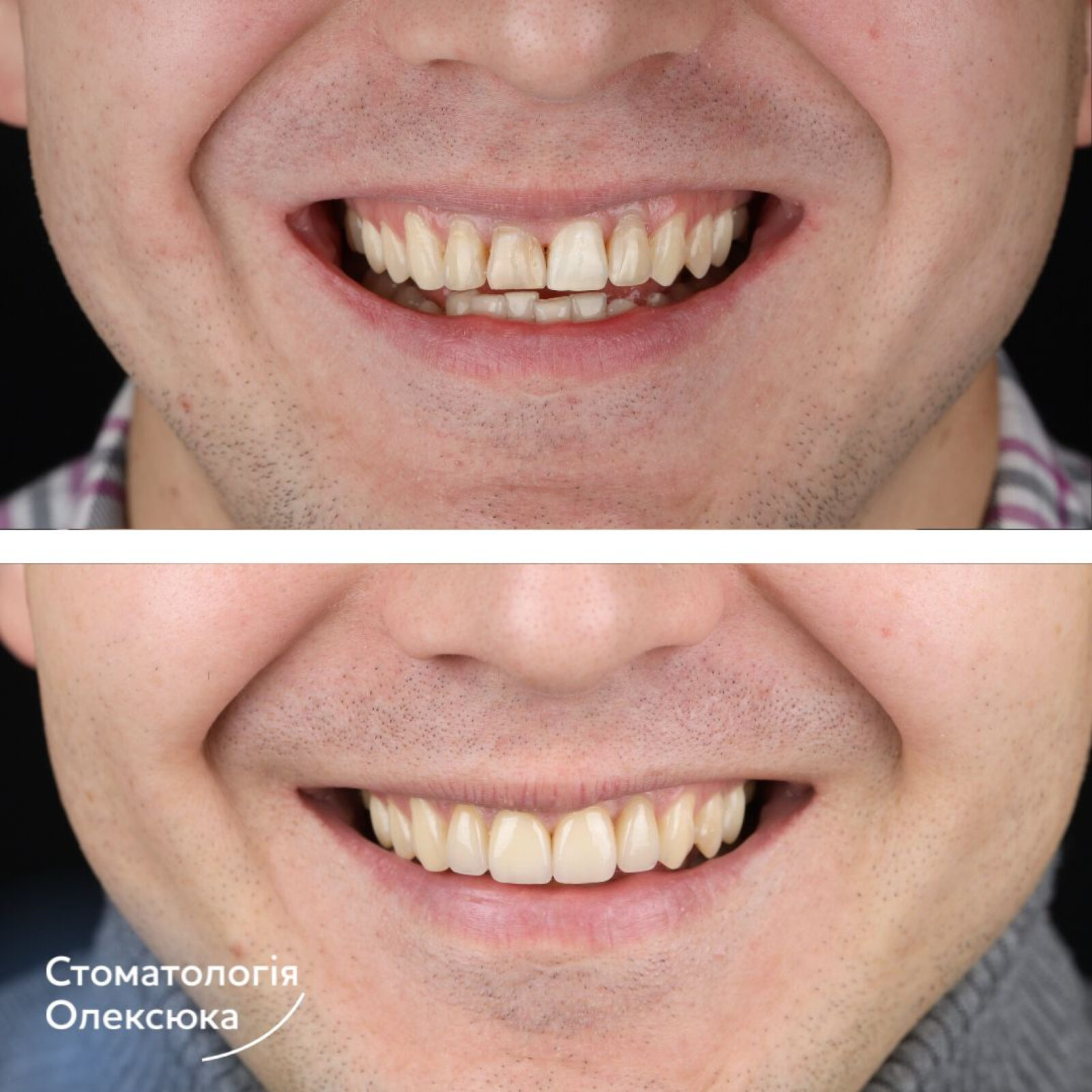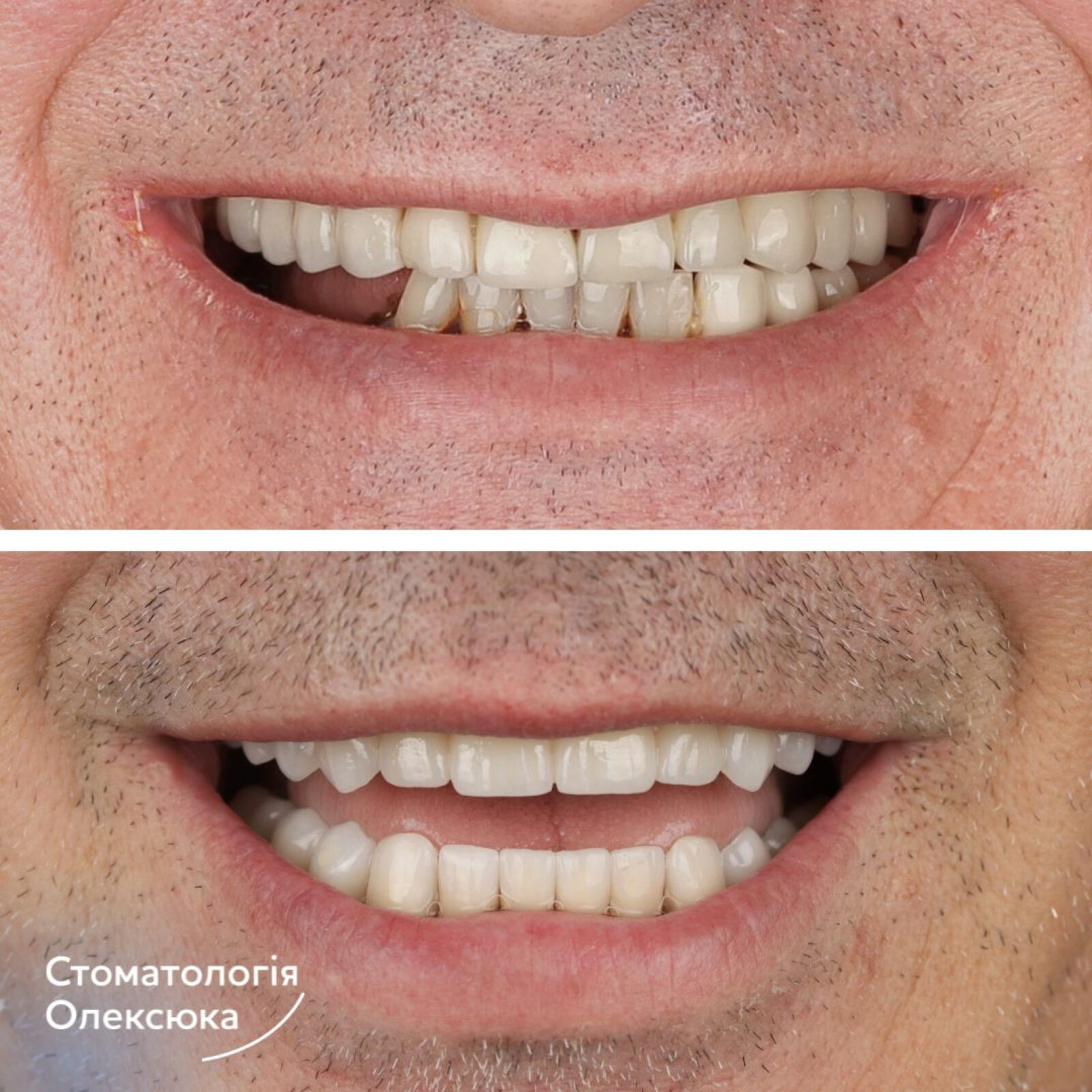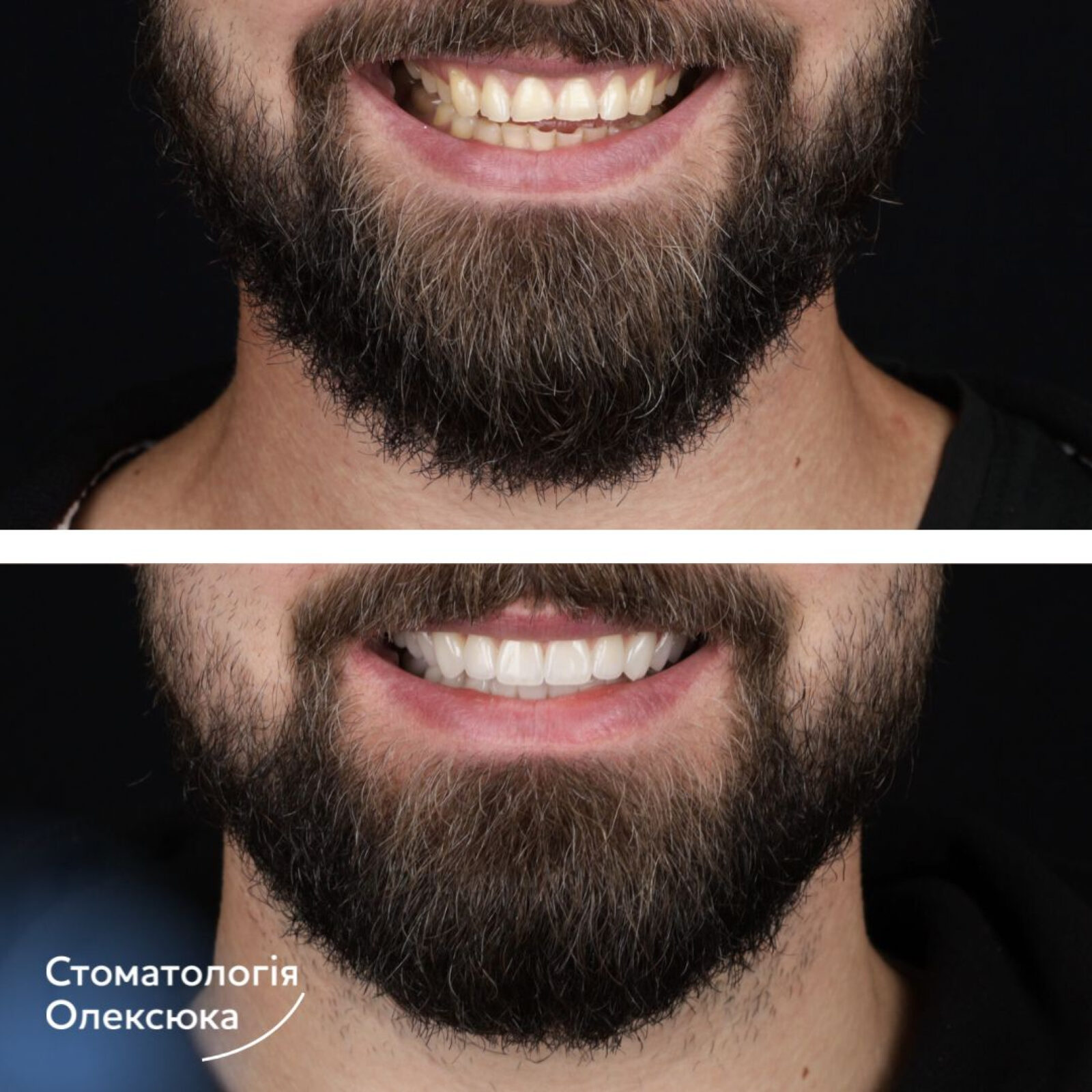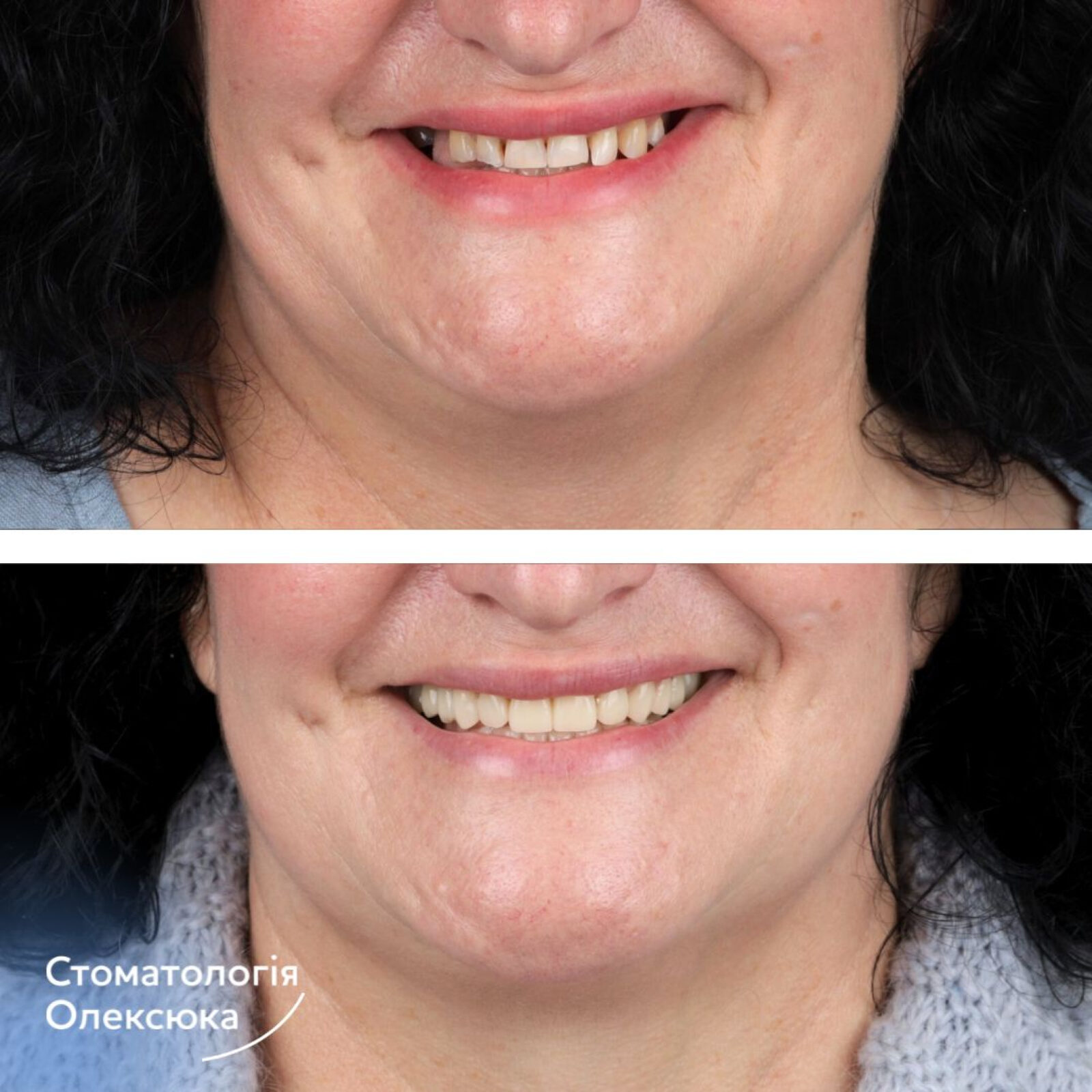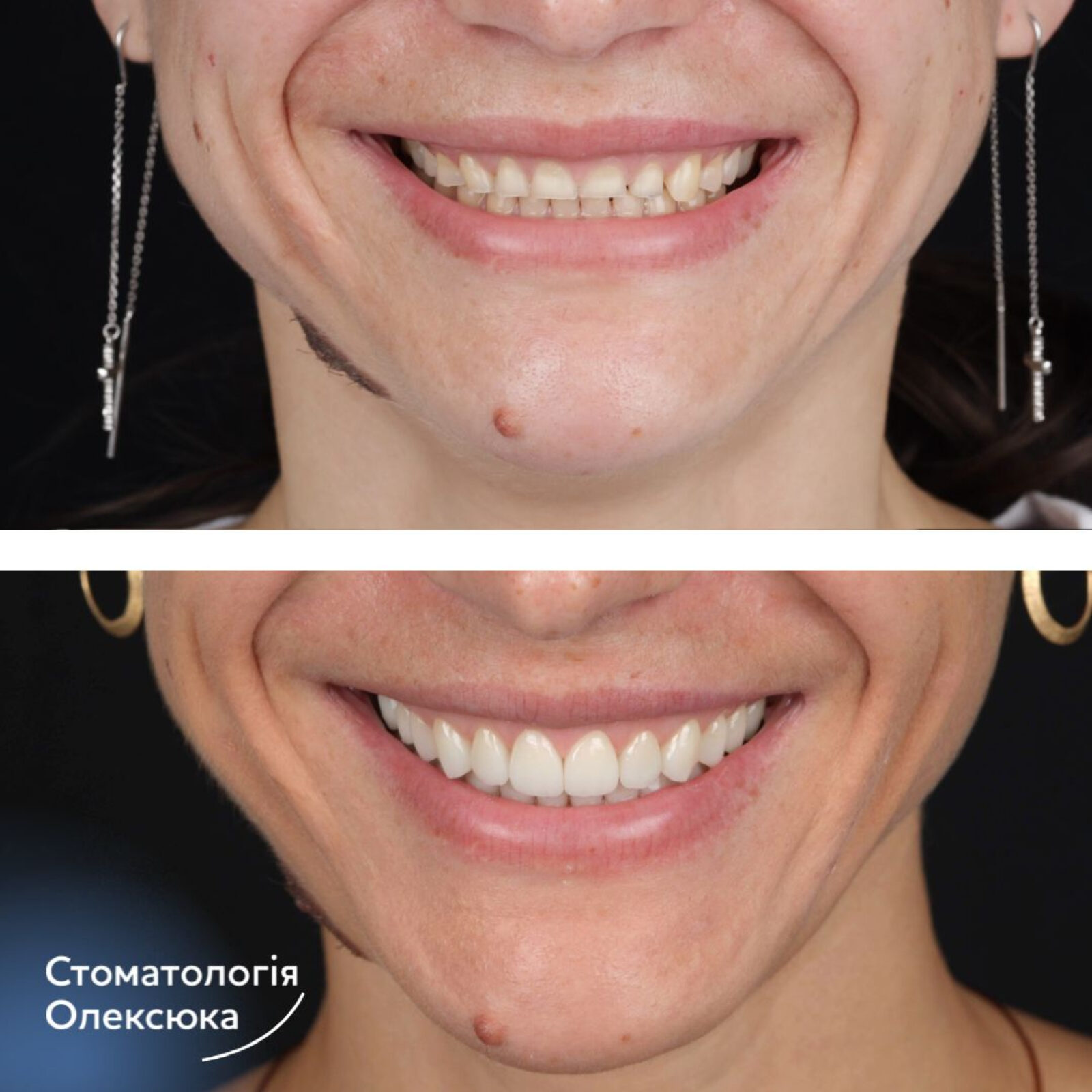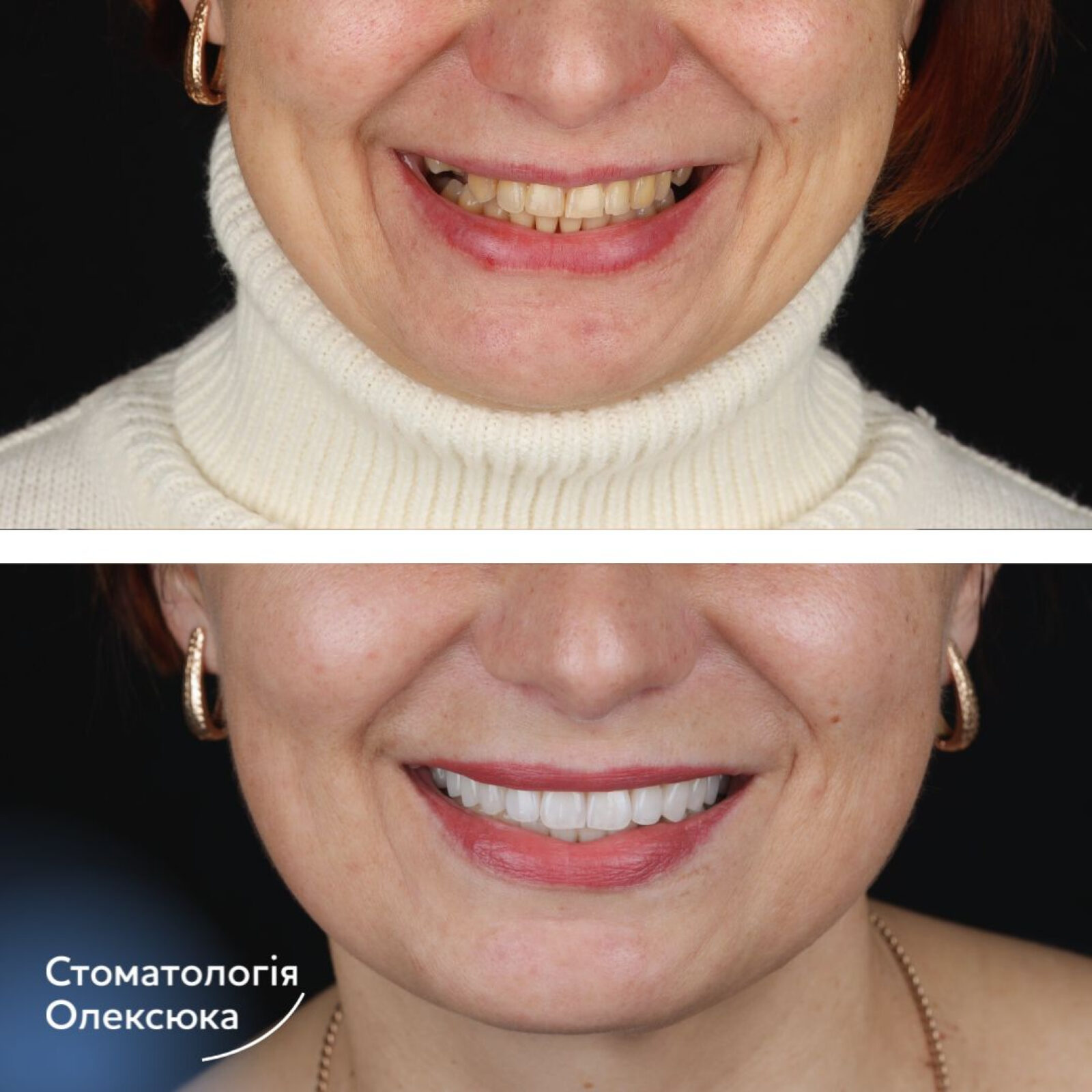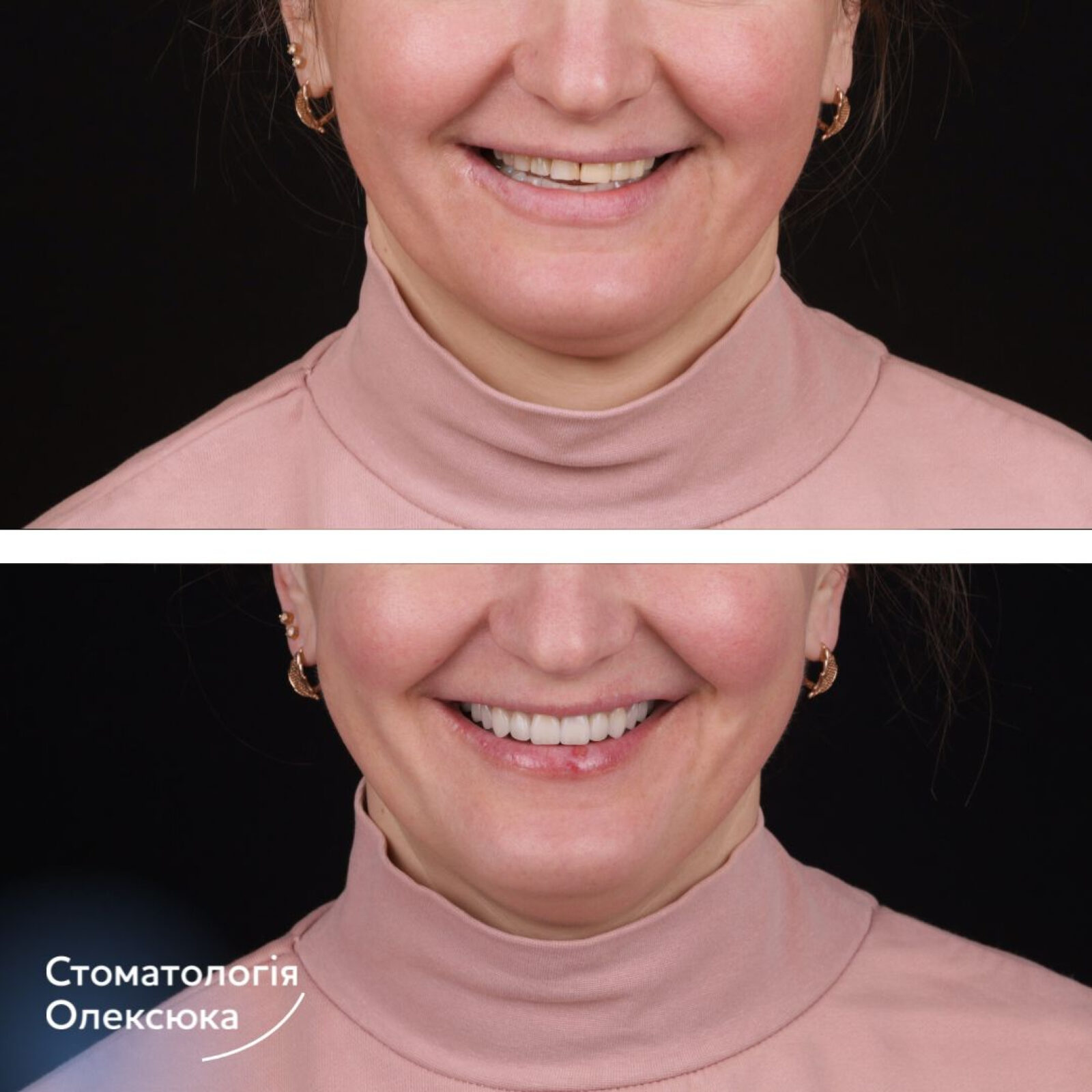Dental prosthetics - The art of restoration
Dental prosthetics is a method of restoring teeth in case of their partial or complete absence.
The section of prosthetics is referred to as orthopedic dentistry. Please do not confuse orthodontics with orthopedics, as the former deals with bite correction (braces of various types), and this is the aesthetic side of the issue. However, remember that the correct bite is a guarantee of the longevity of your teeth. We have linked these two concepts for a reason, the relationship between the external beauty of teeth and health has always been and remains.
The most common and basic indications for dental prosthetics.
There are several factors that require dental treatment with prosthetics:
- Pathological tooth abrasion - in some people, the process of tooth abrasion becomes very intense. This is a type of disease when the hard tissues of the tooth are reduced and the enamel is destroyed. This problem occurs in 12% of people and is a direct indication for prosthetics with crowns or veneers.
- The destruction of most of the tooth crown occurs when a person has a very advanced stage of caries. A general dentist is not able to restore a significantly destroyed crown. One of the tooth walls may simply be lost.
- Restoration of teeth with conventional fillings is impossible. In this case, the tooth is restored with the help of microprosthetics - inlays and crowns are installed. This also includes dental prosthetics for periodontal disease. At Dentistry "Oleksiuk" you will be prescribed high-quality treatment.
- The tooth crown is completely destroyed. The tooth is destroyed to such an extent that only the root remains. Then special pins are installed.
- Complete absence of teeth. This fact is one of the most common indications for prosthetics. Different methods of prosthetics can be used here, depending on the characteristics of the dentition defects. There can be fixed dentures or removable dentures with different designs.
- Defects in the dentition. Specialists at Oleksiuk Dentistry note that the older the patient, the more dental defects they have. Our experienced specialists will help you to make the right choice of a suitable denture design for you.
Classification (types, methods) of dental prosthetics.
Each person needs an individual approach to dental prosthetics. Since there are different options for fixing dentures in the oral cavity, prosthetics can be divided into three main classifications or three types in prosthetic dentistry:
- Removable prosthetics is the manufacture of a removable denture to restore lost teeth in a patient. Defects in the dentition are eliminated with the help of removable dentures. Such prosthetics is often used in the case of complete or partial absence of teeth. But there are some cases when removable prosthetics are used on a small area of dentition defects. This type of removable prosthetics can be conditionally divided into three types:
- Partially removable dentures;
- Conditionally removable dentures;
- Fully removable dentures;
- Fixed prosthetics is a type of dental prosthetics in which one tooth or part of it is restored with completely fixed prostheses that are permanently fixed by the dentist in the oral cavity. In this case, the patient wears a fixed prosthesis permanently. With the help of dental materials, the parts of the manufactured prosthesis (fixed) and the preserved parts of the tooth crown and or tooth root are connected (fixed). Often, fixed dentures are installed on teeth that are in a row. This type of prosthetics can also be divided into three methods:
- Dental prosthetics with crowns;
- Dental prosthetics with partial crowns;
- Dental prosthetics with bridges;
- Combined prosthetics is a classification of dental prosthetics that combines elements of partial removable and fixed prosthetics.
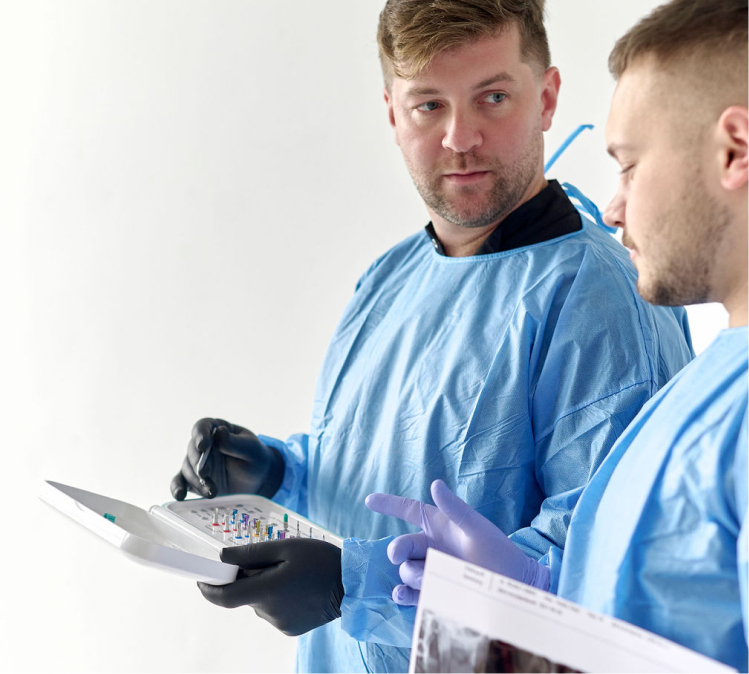
How dental prosthetics works.
1.The first stage of treatment is a consultation with a dentist, namely an orthopedic dentist. The doctor examines the patient, then draws up a treatment plan and discusses with the patient all possible options for prosthetics. From these, the patient chooses the best option for himself and approves it. When drawing up a treatment plan, the orthopedic dentist must take into account the treatment of caries, pulpitis, filling of tooth canals, possible removal of teeth that cannot be treated, and so on.
Next, the doctor selects special crowns or bridges for you for prosthetics. You will also immediately discuss the cost and timing of treatment with our dentist.
- At the second stage, the process of prosthetics takes place, the teeth are polished and the stumps are left (in essence, this is a reduced tooth on which the crown will be installed). Next, the dentist takes an impression, which will be used by the dental technician as the basis for the manufacture of a metal-ceramic crown.
Very often, patients come to our dental clinic from far away, and they do not have the opportunity to stay in the city for the entire period of treatment. That's why we take an impression and make crowns. And we carry out the actual fitting when they come back next time. And for such patients, we temporarily install plastic crowns.
Types of dentures: which ones are better - the choice is yours.
Nowadays, in addition to traditional removable dentures (the so-called dentures), a new generation of dentures has been developed. These include the following:
- Dental crowns can be metal-ceramic (including precious or semi-precious materials), cast, stamped metal crowns, crowns made on a frame of zirconium dioxide and aluminum oxide, pressed one-piece ceramic crowns, composite, metal-composite, plastic and metal-plastic crowns.
- It should be noted here that crowns are divided into temporary and permanent. In terms of time, temporary crowns are made from two weeks to eight months in order to fully stabilize the chewing process. They are cheaper, but a huge disadvantage of such crowns is that hygiene deteriorates, inflammatory processes appear on the part of the soft tissues surrounding the plastic crown. Therefore, for a long time, it is better to make crowns made of metal-composite or metal-plastic materials. They have a better marginal adaptation to the tooth stump ledge.
Clasp dentures (arched), they have a cast frame and an acrylic base for the removable part. This type of dentures also includes lamellar dentures, small saddle dentures, and nylon dentures. All of these types of dentures have a lock (attachment), which are also divided into different types of fixation:
- Clamp fixation
- Locking mechanism
- Telescopic fixation
- Fixation of prostheses with the help of pelots.
- Implant prosthetics.
Oleksiuk Dentistry uses only the best dentures to help you restore chewing function and aesthetics of the dentition.
"Which prosthesis is the best?" you may ask.
You will be able to answer this question for yourself after our prosthodontists analyze many factors when selecting a design for you. Only then, on an individual basis, the patient is offered several options for dentures to choose from, which are suitable in your particular case. In our clinic, we offer our patients only dentures made of hypoallergenic materials. The designs of the proposed dentures fit snugly to the gum mucosa, so the likelihood of food ingress and infection growth in unnecessary areas of the oral cavity is significantly reduced.
We guarantee that the dentures installed at the Oleksiuk Clinic will serve you for many years, as they are very close in strength to your own teeth.
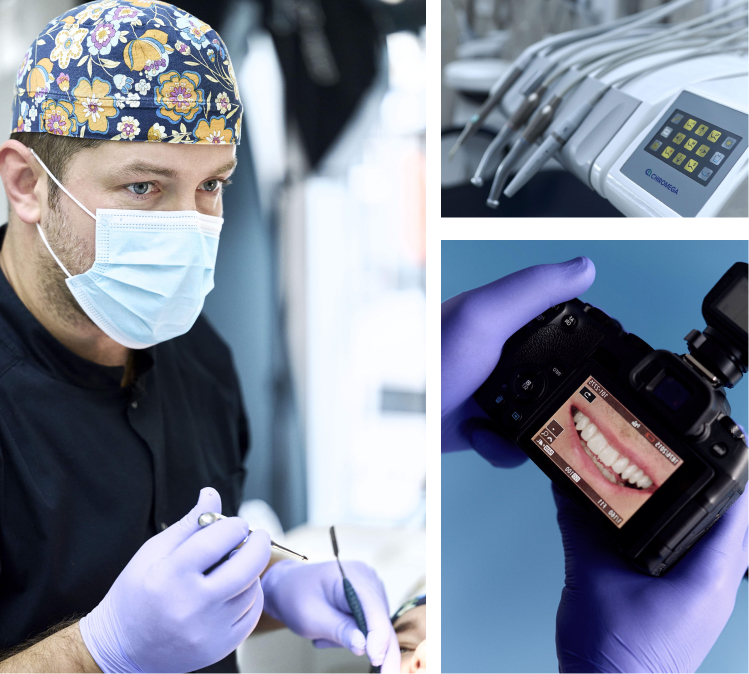
Prices.
- Microprosthesis (thermoplastic) 6500 UAH
- Digital vaxaphone (one jaw) 5000 UAH
- Zirconium oxide crown faced with ceramic from 230 euros
- Extrusion (orthodontic lengthening) 1 tooth 4900 UAH
Make an appointment!
We will call you back as soon as possible to clarify the details of the appointment. If you have any questions, our manager will answer them
The questions that often interest our patients are the advice of our dentists.
Do I need to remove my dentures at night?
This question concerns removable dentures. Modern dentures do not have to be removed during sleep. It is very important to learn how to store and put them on properly. Of course, you can't do without training. Try to do it several times in front of a mirror, and then your hand will "get used to it" and you will perform all the manipulations with your dentures easily and quickly.
Remember that you should always remove the denture when you feel an unpleasant burning sensation on the mucous membrane, or you have significant dry mouth, or you have any rash or other allergic manifestations on your body or mouth.
How to get used to dentures?
After denture placement, you may experience some inconvenience, because after all, a denture is a foreign body in your body. You may experience excessive salivation (water will help you here - drink in small sips). You may have a gag reflex (we recommend that you breathe deeply through your nose, as well as rinse your mouth with saline and try to suck on some lollipops). Loss of taste is possible.
You may experience discomfort while chewing food - in the first weeks after the prosthesis is placed, please refuse solid food, exclude nuts, hard meat, apples, and any foods that may cause you discomfort from your diet. Eat only soft food, cut it into small pieces if necessary.
How to restore diction after dental prosthetics?
Usually, speech is restored in two to three weeks. Still, we recommend that you do some exercises - read aloud smoothly and long. Say tongue twisters and pay special attention to the merging of sounds.
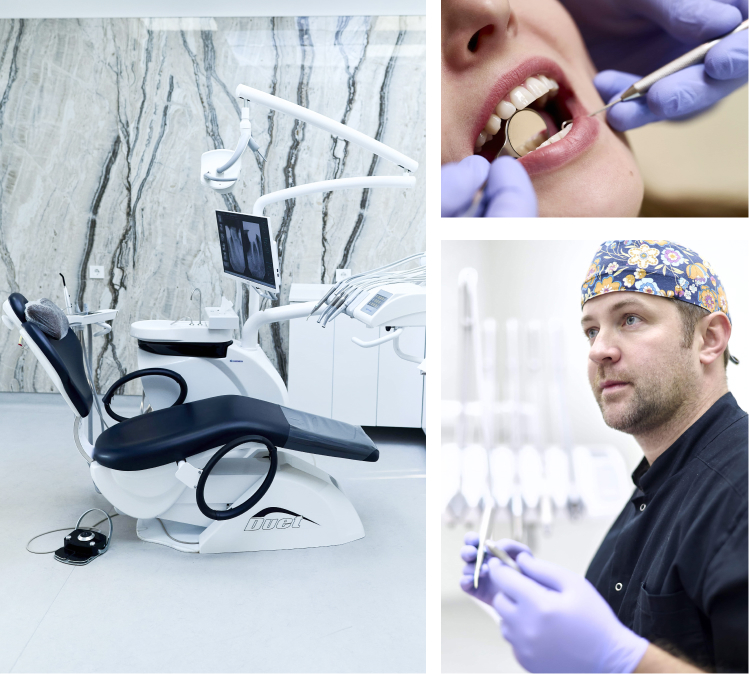
Competent prosthetics at the European level for an affordable Ternopil price.
When the question of the need to restore teeth with dentures arises, people start to get scared - besides the fact that it hurts, it's also expensive. You should remember that a dentist's prescription about the need to restore a tooth with dentures is not a sentence, but a vital necessity.
We can guarantee you that we won't charge you more than average private dentists do. We will offer all possible treatment options to save you money.
For example, you can restore part of a tooth for several years with the help of medical pins and various composite materials. This procedure is much more economical than prosthetics. Or, if you need prosthetics of chewing teeth that are outside the smile zone, then placing a metal crown will be much cheaper than a metal-ceramic one.
Also, Oleksiuk Dentistry has an option to pay in installments.
And remember, to protect your teeth, save a beautiful smile and save you money, it is enough to maintain regular oral hygiene.

Our doctors
Make an appointment!
We will call you back as soon as possible to clarify the details of the appointment. If you have any questions, our manager will answer them

